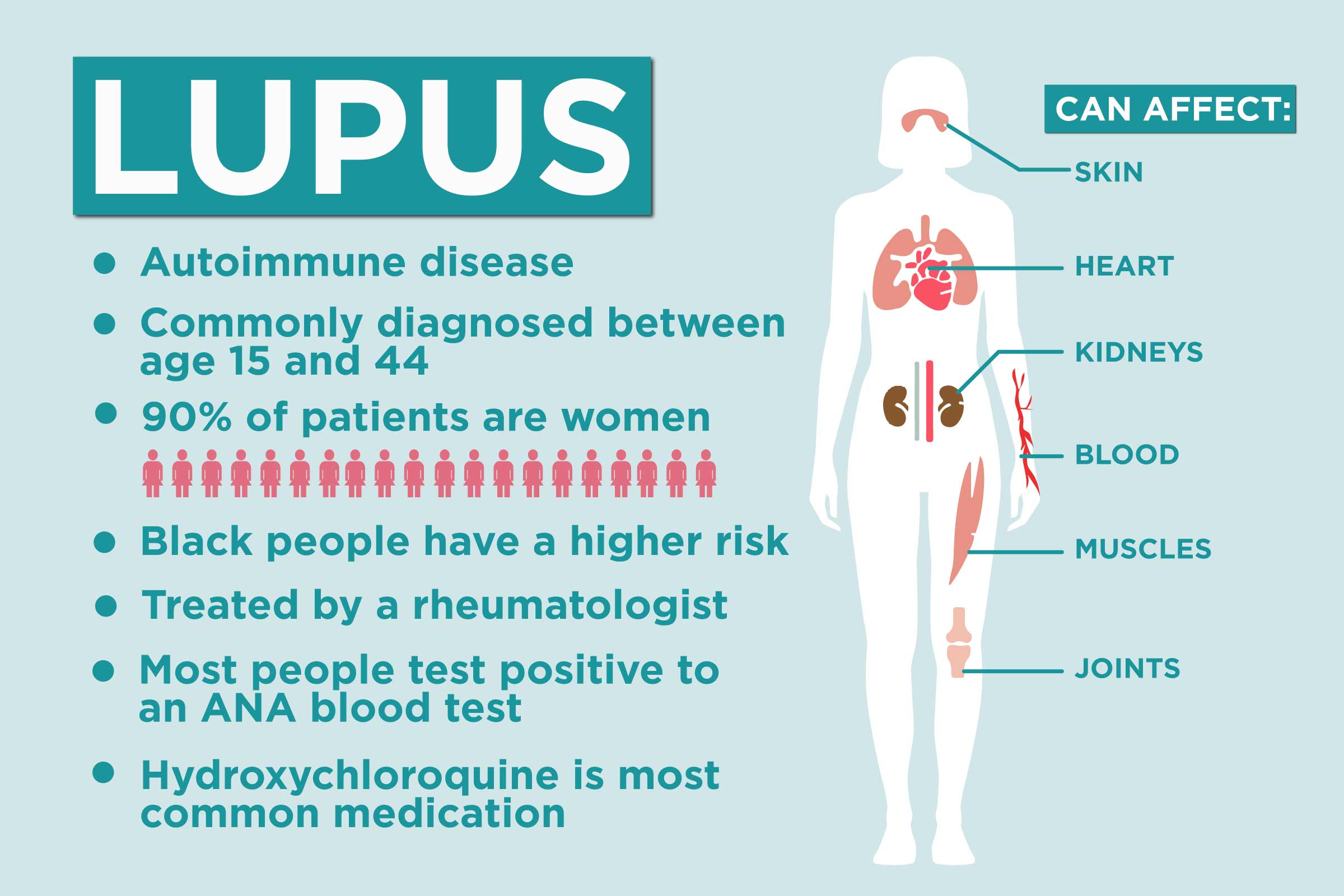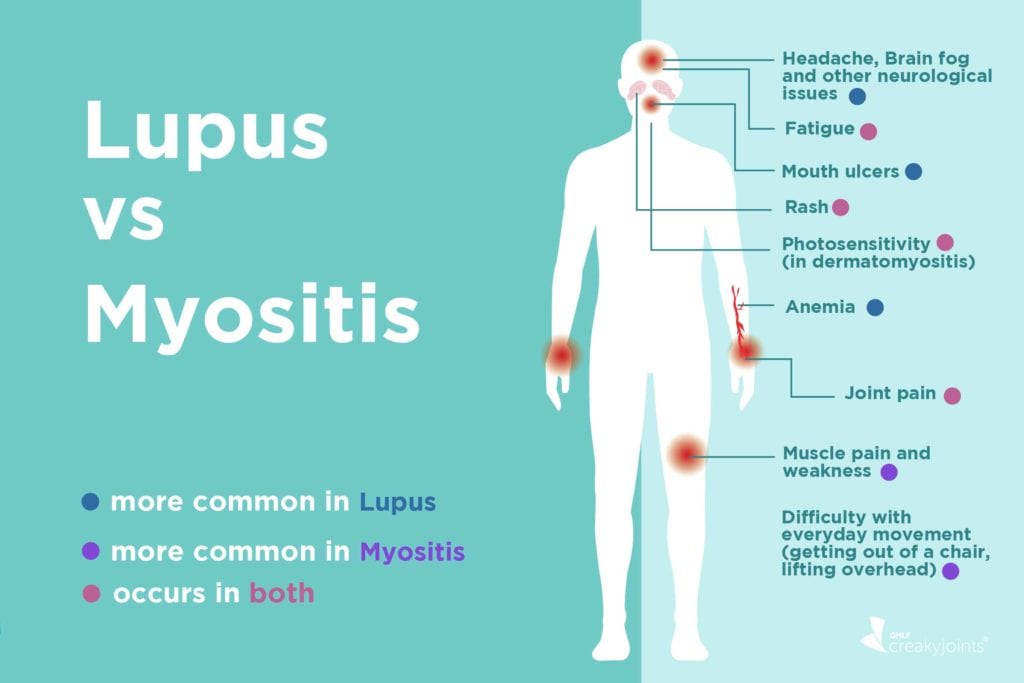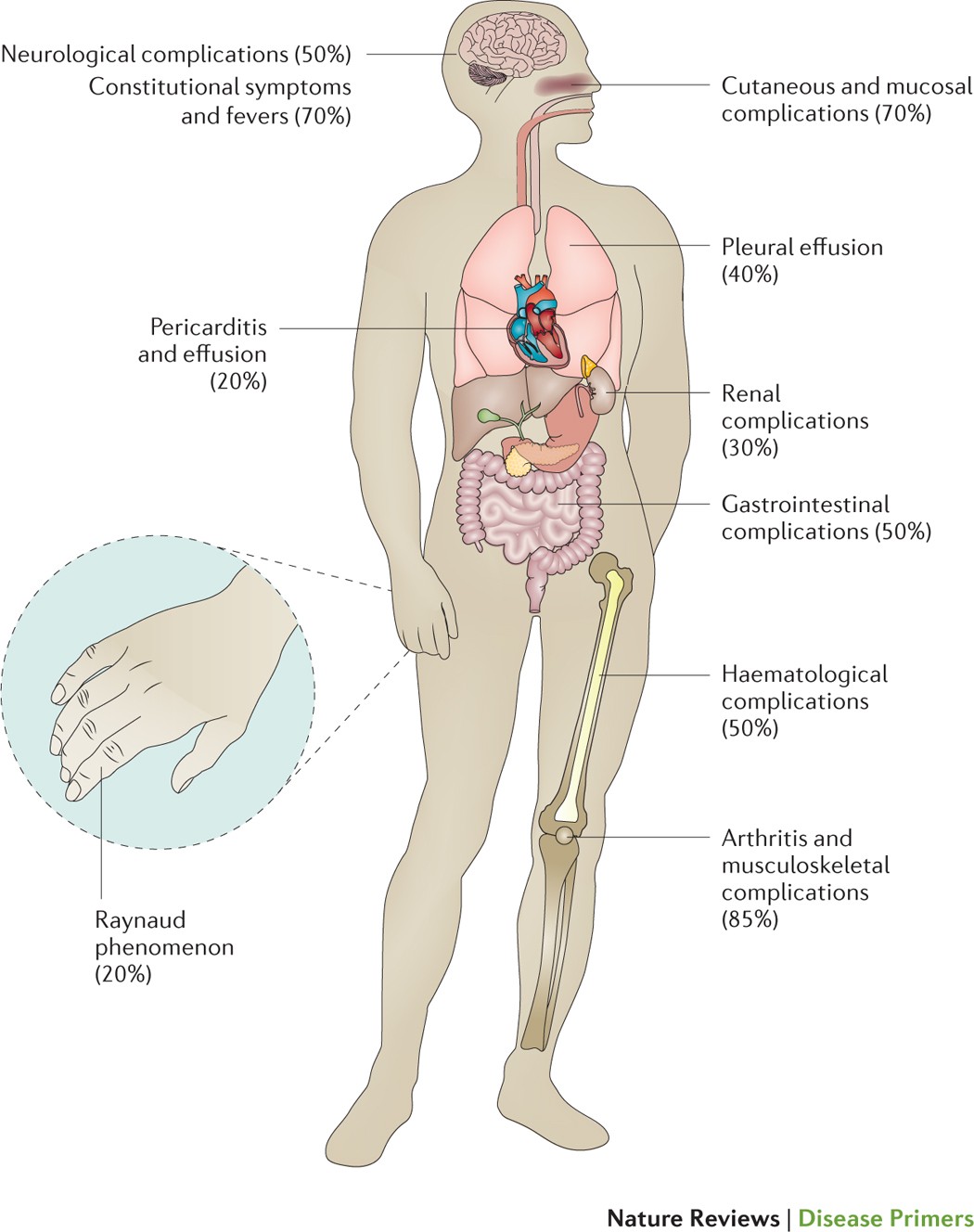Antwort What is lupus life expectancy? Weitere Antworten – How long does a person with lupus live
With close follow-up and treatment, 80-90% of people with lupus can expect to live a normal life span. It is true that medical science has not yet developed a method for curing lupus, and some people do die from the disease. However, for the majority of people living with the disease today, it will not be fatal.Lupus is a chronic inflammatory autoimmune disease with a wide range of clinical presentations resulting from its effect on multiple organ systems. There are four main types of lupus: neonatal, discoid, drug-induced, and systemic lupus erythematosus (SLE), the type that affects the majority of patients.At times, you may feel sadness and anger. But keep in mind, many people with lupus live satisfying and productive lives. Most people with mild disease or who are in remission can usually participate in the same life activities they did before they were diagnosed.
What triggers lupus : Exposure to certain factors in the environment – such as viral infections, sunlight, certain medications, and smoking – may trigger lupus. Immune and Inflammatory Influences.
Can lupus go away
Lupus is a chronic disease with no cure.
This means that you can manage it with treatment, but it will not go away. Treatment can help improve your symptoms, prevent flares, and prevent other health problems often caused by lupus.
Does lupus get worse with age : With age, symptom activity with lupus often declines, but symptoms you already have may grow more severe. The accumulation of damage over years may result in the need for joint replacements or other treatments.
There are some worst autoimmune disease conditions that may affect life expectancy.
- Autoimmune myocarditis.
- Multiple sclerosis.
- Lupus.
- Type 1 diabetes.
- Vasculitis.
- Myasthenia gravis.
- Rheumatoid arthritis.
- Psoriasis.
Researchers of one study found that those with lupus who had a daily caffeine intake between 154 mg – 377 mg/day experienced a lower prevalence of “lupus nephritis, neuropsychiatric involvement, hematological manifestations, hypocomplementemia, and anti-DNA positivity.” These individuals also had lower blood levels of …
What are the first warning signs of lupus
Lupus is an autoimmune disease that may impact any organ in your body. Early signs include a butterfly-shaped skin rash on the face, fatigue, hair loss, and pulmonary and kidney problems. Symptoms of lupus typically start in early adulthood between ages 15-44 .Lupus can range from mild to life-threatening. This very much depends on the parts of the body that are being attacked by the immune system. The most common forms of lupus are milder forms, and most people enjoy a full life, even though they may need to take medications. Lupus is only life threatening in rare cases.Many researchers recognize giant cell myocarditis, a rare autoimmune condition that can lead to heart failure, as one of the most serious autoimmune diseases. It has a 1-year mortality rate of 70% .
Some common autoimmune diseases, including Type 1 diabetes mellitus, are relatively easy to diagnose, while others, such as vasculitis, Addison's disease, lupus, and other rheumatic diseases, are more difficult.
What foods make lupus worse : Foods that seem to trigger a flare vary greatly from person to person. So a food that causes problems for one person may have no effect on you. Some foods that have been said to make lupus worse include nightshade vegetables, and animal protein. Nightshade vegetables include potatoes, tomatoes, eggplant, and peppers.
What lupus patients Cannot eat : Foods that could cause inflammation
- Fried foods.
- Commercial baked goods.
- Creamed soups and sauces.
- Red meat.
- Animal fat.
- Processed meat products.
- High-fat dairy like whole milk, cream, cheeses, butter, and ice cream.
What age does lupus usually start
Age. Although lupus affects people of all ages, it's most often diagnosed between the ages of 15 and 45.
In most cases, lupus is not fatal. In fact, 80% to 90% of people who have this autoimmune disease will likely live a normal life span. Still, some people do die from the disease, in which your immune system attacks your body's organs and tissues.Life-threatening autoimmune conditions
- Giant cell myocarditis. This condition causes inflammation of the heart muscles.
- Anti-NMDA receptor encephalitis. This condition leads to sudden inflammation in the brain.
- Mixed Connective Tissue Disease.
- Autoimmune vasculitis.
What is the most serious autoimmune : While any autoimmune disease can be hard to manage day to day, there are a few that can be fatal: Giant cell myocarditis. Though rare, giant cell myocarditis is a life-threatening autoimmune condition that attacks your heart muscle. It has a one-year death rate of 70%.



:max_bytes(150000):strip_icc()/what-is-lupus-2249968_final-58afa149bc23484c9d3f2c248fb8520b.png)

